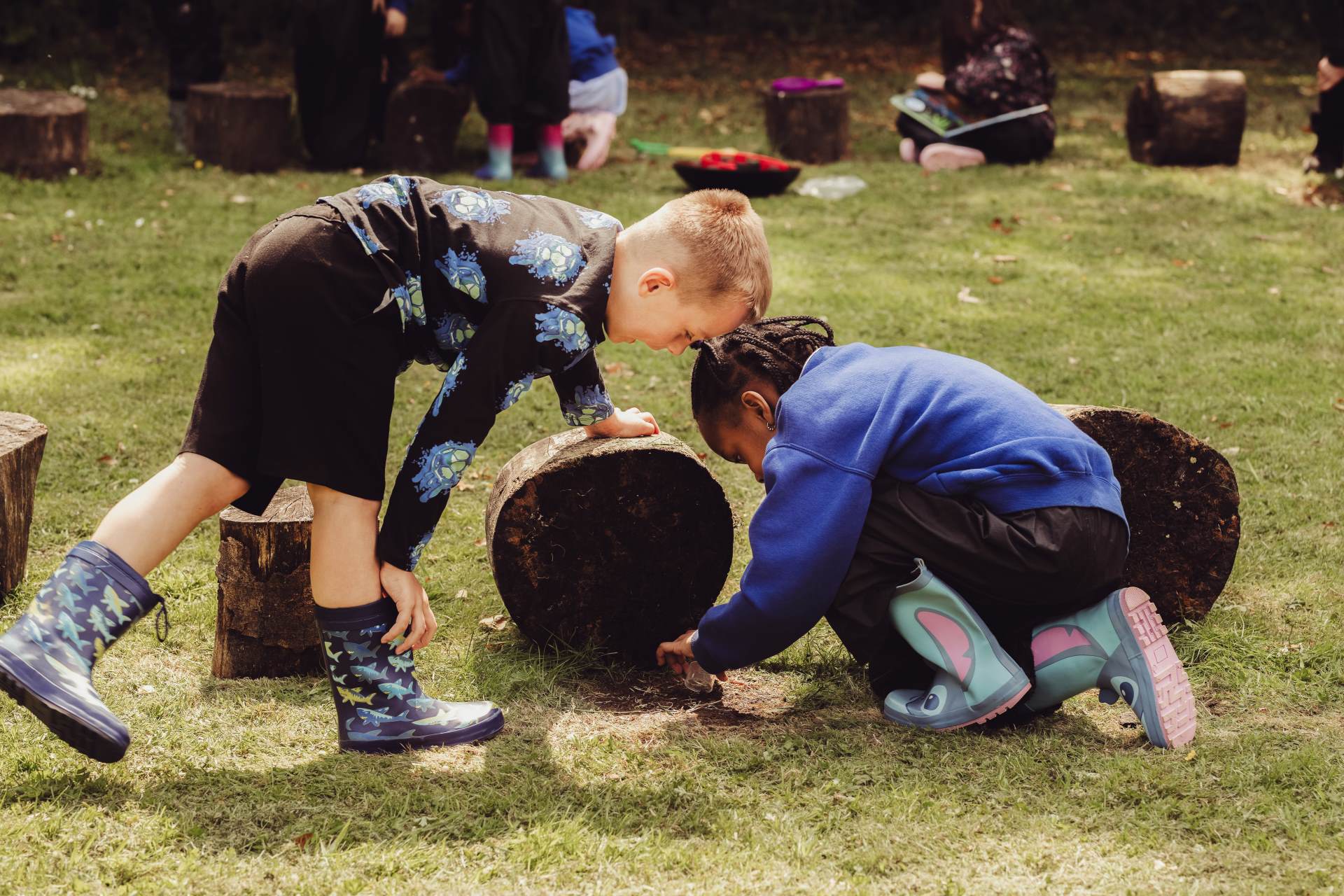Early Years Foundation Stage (EYFS)
 Introduction
Introduction
At Wrockwardine Wood Infant School and Nursery, and Oakengates Nursery School, we believe that all children deserve the care and support they need to have the best start in life. Children learn and develop at a faster rate from birth to five years old than at any other time, so their early experiences have a major impact on their future life chances.
A secure, safe, and happy childhood is essential. Good parenting and high-quality early learning provide the foundation children need to fulfil their potential.
We are committed to:
-
Inspiring and motivating our children so they engage with learning and make excellent progress.
-
Understanding each child as an individual – academically, socially, emotionally, and spiritually.
-
Ensuring that a happy childhood is the right of every child.
-
Providing play and first-hand exploration as a crucial part of development.
-
Creating a caring community where fairness, justice, and respect for others are central.
Our Aims
Our EYFS provision ensures:
-
A broad and balanced curriculum giving children the knowledge and skills for life.
-
High-quality, consistent teaching so that every child makes good progress.
-
Strong partnerships between staff, parents and carers.
-
Inclusion and equality of opportunity for every child.
Our EYFS Provision
We offer high-quality early years education across our settings:
Wrockwardine Wood Infant School and Nursery
-
Reception Year – full-time education.
-
Nursery – 15 hours per week (5 mornings or 5 afternoons).
-
30 hours for eligible families (term time only) with optional lunchtime provision (see Charges and Remissions Policy for details).
Oakengates Nursery School
-
Baby Room – care for children aged 0–2 years.
-
Toddler Room – care for children aged 2–3 years, including funded Talking 2s places.
-
Preschool – 15 or 30 hours per week for 3–4-year-olds.
Our Curriculum
We follow the EYFS Statutory Framework 2025, using Development Matters (2023) and Birth to 5 Matters (2021) for guidance.
Our curriculum:
-
Encourages deep learning, creativity, exploration, problem-solving, and risk-taking.
-
Inspires curiosity so children ask questions and think critically.
-
Embeds spiritual, moral, social, and cultural development into all learning.
-
Promotes respect for different people, families, and communities.
-
Supports children in understanding how to keep themselves happy, healthy, and safe.
We recognise that every child is unique, develops at different rates, and is capable, confident, and resilient. Through praise, encouragement, and celebrating success, we foster a positive attitude to learning.
Characteristics of Effective Teaching and Learning
Our teaching reflects three key characteristics:
-
Playing and exploring – children investigate and ‘have a go’.
-
Active learning – children concentrate, persevere, and enjoy their achievements.
-
Creating and thinking critically – children develop their own ideas, make links, and solve problems.
Areas of Learning and Development
There are 7 areas of learning in the EYFS, split into:
Prime Areas – vital for early development:
-
Communication and Language
-
Physical Development
-
Personal, Social, and Emotional Development
Specific Areas – built upon the prime areas:
-
Literacy
-
Mathematics
-
Understanding the World
-
Expressive Arts and Design
Our curriculum also develops:
-
Enquiry, adaptability, resilience, morality, cooperation, and respect.
-
Pride in heritage and culture, alongside respect for others’.
-
Skills for working together and resolving differences positively.
Planning and Teaching
-
Activities are tailored to children’s individual needs, interests, and development stage.
-
Younger children focus on the prime areas, with the balance shifting towards adult-led learning in Reception to prepare for Year 1.
-
We blend adult-led and child-initiated play with warm, positive interactions.
Assessment
We use ongoing assessment to track and support progress:
-
Progress check at age two – written summary for parents.
-
Nursery Stay and Play sessions – termly progress sharing.
-
Reception Baseline Assessment – within first six weeks of school.
-
Parent consultations – Autumn and Spring, plus end-of-year written report.
-
EYFS Profile – final assessment at the end of Reception against 17 Early Learning Goals.
Working with Parents
Parents are children’s first and most enduring educators.
We:
-
Maintain strong communication about progress and next steps.
-
Assign each child a Key Person to tailor learning and care, and to support families in accessing specialist help if needed.
Safeguarding, Welfare, and Wellbeing
We have robust policies covering safeguarding, online safety, safer recruitment, and behaviour – all available on our websites.
Our provision includes:
-
Appropriate staff ratios in line with statutory requirements.
-
Healthy, balanced meals and snacks.
-
Support for emotional wellbeing, including our Keeping Ourselves Happy, Healthy and Safe programme and Brilliant Brushers oral health initiative.
-
Paediatric First Aid trained staff always present.



